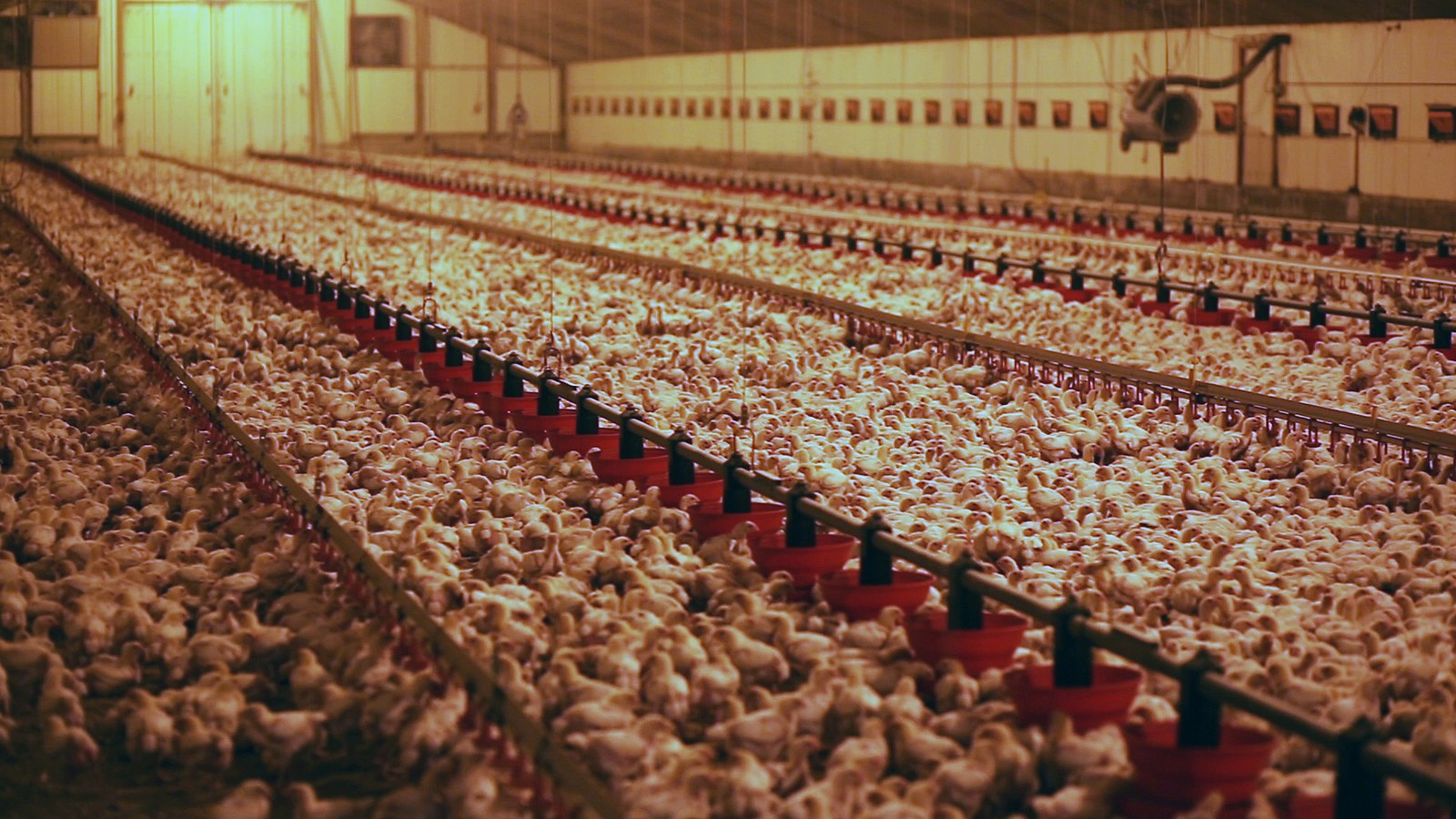Gene-edited chickens to combat bird flu: Saviour or liability?
By Claire Robinson,
GMWatch
| 10. 19. 2023
Chicken farm by "L214 - éthique et animaux"
from Wiki Commons, licensed under CC by 3.0.
Scientists at the University of Edinburgh’s Roslin Institute — the animal research centre where Dolly the sheep was created — have used CRISPR gene editing to develop chickens that resist infection by bird flu, a disease that has decimated some wild bird populations and commercial poultry flocks across the world. But there are serious risks and limitations in the research, which were even indicated by the scientists involved but were largely ignored or downplayed by mainstream media outlets.
A press statement by the Roslin called the gene-edited chickens a “significant step in bird flu fight” and said, “Alterations to key gene associated with infection offer partial protection and suggest [a] path to flu-resistant poultry”. The findings are published in Nature Communications.
The Roslin reported that the scientists used gene-editing techniques to identify and change parts of chicken DNA that could limit the spread of avian flu in the birds. The bird flu virus needs a protein present in chicken cells, ANP32A, to...
Related Articles
By Diaa Hadid and Shweta Desai, NPR | 01.29.2026
MUMBRA, India — The afternoon sun shines on the woman in a commuter-town café, highlighting her almond-shaped eyes and pale skin, a look often sought after by couples who need an egg to have a baby.
"I have good eggs,"...
By George Janes, BioNews | 01.12.2026
A heart attack patient has become the first person to be treated in a clinical trial of an experimental gene therapy, which aims to strengthen blood vessels after coronary bypass surgery.
Coronary artery bypass surgery is performed to treat...
By Staff, ScienceDaily | 01.05.2026
Scientists at UNSW Sydney have developed a new form of CRISPR technology that could make gene therapy safer while also resolving a decades-long debate about how genes are switched off. The research shows that small chemical markers attached to DNA
...
Following a long-standing CGS tradition, we present a selection of our favorite Biopolitical Times posts of the past year.
In 2025, we published up to four posts every month, written by 12 authors (staff, consultants and allies), some in collaboration and one simply credited to CGS.
These titles are presented in chronological order, except for three In Memoriam notices, which follow. Many more posts that are worth your time can be found in the archive. Scroll down and “VIEW...




